Judith Zaugg (Group Leader) contact: judith.zaugg [at] embl.de (Curriculum Vitae)
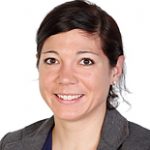
Judith studied Chemical Biology at ETH Zurich and did her PhD at the EMBL-EBI in computational functional genomics, investigating non-canonical transcriptional regulatory mechanism in yeast. For her postdoc she went to Stanford University where she studied the genetic basis of regulatory variation across healthy human individuals, integrating multiple histone ChIP-Seq for multiple individuals with physical interactome data (Hi-C, ChIA-PET) to identify genetic associations between distal regulatory elements.
Her main research interest is to understand how the interplay of genetics, epigenetics and cellular signalling converge onto gene regulatory programmes that eventually gives rise to complex phenotypes, including diseases.
Apart from research, Judith likes mountain biking, skiing, running and having fun with her family.
Christian Arnold (Staff Bioinformatician) contact: christian.arnold [at] embl.de
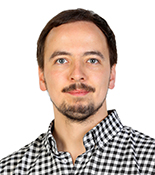
Christian studied Bioinformatics at University Leipzig. After that, he worked as a research fellow at Harvard University for a year before starting his PhD at University of Leipzig in the field of epigenetics. Specifically, he regarded chromatin as a biological computer and studied its properties, computational power, and disease relevance.
His main research interests are efficient algorithm development, developing automated pipelines for biological data analysis, epigenetics, phylogenetics and, more generally, finding creative solutions for a wide range of bioinformatics challenges.
Apart from research, Christian likes to meet (new) people and to play chess. He is also a Bouldering aficionado and likes to travel.
Gwen Bauersachs (Laboratory Officer) contact: gwen.bauersachs [at] embl.de
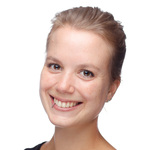
Gwen studied Biosciences and did her PhD at Heidelberg University, during which she used iPSC-derived brain organoids to investigate glutamate-induced neurotoxicity. In the Zaugg group she´s taking care of organizational aspects and provides experimental support for single cell multiomic approaches and whatever else is needed.
In her free time, Gwen likes to go bouldering, hiking, doing yoga, cooking and spending time with friends and her cats.
Mikael Marttinen (Postdoctoral fellow joint with Noh lab) contact: mikael.marttinen [at] embl.de
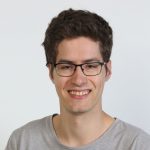
Mikael studied Biochemistry and did his PhD at the University of Eastern Finland, during which he analysed the transcriptomic and phosphoproteomic alterations associated with Alzheimer’s disease-related neurofibrillary pathology in human brain.
His main interest in the Zaugg and Noh labs is to use a combination of in vitro generated neurons and glia cells and next generation sequencing techniques to study the molecular phenotypes of Alzheimer’s disease-associated risk variants.
Apart from research, Mikael likes bouldering, hiking/camping, and making music.
Annique Claringbould (Postdoctoral EIPOD fellow joint with Steinmetz lab) contact: annique.claringbould [at] embl.de
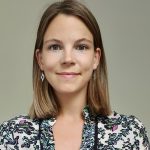
Annique studied Life Sciences at University College Utrecht in the Netherlands and continued to do an MSc in Human Molecular Genetics at Imperial College London. She did her PhD at the University Medical Centre in Groningen, the Netherlands, where she studied how human genetic variation influences gene expression levels. Her current research in the Zaugg and Steinmetz groups is in constructing and validating gene regulatory networks to better understand complex diseases.
When she is not doing research, Annique loves to dance, scuba dive and travel the world to discover beautiful places.
Karin Prummel (Postdoctoral fellow joint with the Saka lab) contact: karin.prummel [at] embl.de
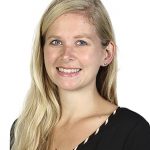
Karin studied Biomedical Sciences at Utrecht University in the Netherlands and did her master’s degree in Cancer, Genomics, and Developmental Biology. She did her PhD at the University of Zurich in Switzerland, where she worked on the cell fate decisions of the mesoderm during embryology using various microscopy, sequencing, and genome editing approaches. Her main focus in the Zaugg group is studying the gene regulatory mechanisms involved in remodeling of the bone marrow niche upon leukemia, using single-cell ‘omics methods and multiplexed imaging.
Outside of the lab, Karin loves to climb, hike, snowboard, and play piano.
Nila Servaas (Postdoctoral fellow joint with GSK) contact: nila.servaas [at] embl.de
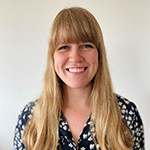
Nila studied Biomedical Sciences at Utrecht University in the Netherlands where she also continued to do her MSc in Drug Innovation. She did her PhD at the Center for Translational Immunology (CTI) at the University Medical Center Utrecht, the Netherlands, where she focused on integrating computational and experimental approaches to study immune cell dysregulation in the autoimmune disease Systemic Sclerosis. Her main research in the Zaugg group evolves around understanding the gene regulatory and signaling mechanisms driving immune cell differentiation.
When she is not in the lab, Nila likes to do weightlifting, biking, DJing or brew/enjoy craft beers.
Kristy Ou (Postdoctoral EIPOD fellow joint with the Saka lab) contact: kristy.ou [at] embl.de
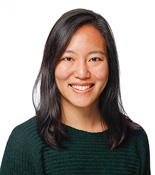
Kristy studied Math and Applied Science at the University of California, Los Angeles in the US, where she first became exposed to biomedical research as an undergrad researcher in a systems biology lab. She continued with her PhD at the University of Pennsylvania, where she used targeted epigenetic editing approaches to induce cell cycle entry in pancreatic beta cells. Afterwards, Kristy did a short postdoc at Charité University in Berlin, Germany, where she profiled manufacturing-induced epigenetic changes in adoptive T cell therapies. As a postdoc in the Zaugg and Saka groups, Kristy aims to characterize regulatory networks driving drug resistance in lymphoma through single cell approaches.
In her free time, Kristy enjoys urban sketching, learning new languages, and being adventurous with friends.
Charles Dussiau (Postdoctoral fellow joint with Milsom lab) contact: charles.dussiau [at] embl.de
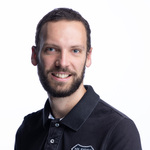
Charles studied Pharmacy at University of Tours in France, and continue with a four years residency in Medical Biology specialized in Hematology at Paris hospitals. He then worked as a clinical biologist for 2 years in Cochin hospital. Afterwards, during his PhD at Cochin Institute, he studied Hematopoietic and Progenitor Cells in myelodysplastic neoplasms. He then worked for 2 years as a clinical biologist in the Hematology laboratory of Bordeaux hospital. His main research interest in the Zaugg and Milsom groups is to integrate single cell omics with cellular and functional features to better understand how aging affects hematopoiesis.
In his free time, Charles enjoys swimming, running, playing guitar and go out with friends.
Dirk Hart (Postdoctoral fellow) contact: dirk.hart [at] embl.de
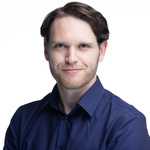
Dirk studied Medical sciences and did his MSc in Virology at Stellenbosch University, South Africa. He completed his PhD in Biomedical sciences at Fribourg University, Switzerland where he worked on gene transcription in human development and generation of a human ovarian granulosa cell model from iPSCs. In the Zaugg group his research focus will be to study the remodeling of the bone marrow niche upon leukemia, using 3D cell culture models and single cell omics.
In his free time Dirk is an avid sport follower, likes to keep active in the gym or outdoors, enjoys spending time with friends and to travel to new places.
Jupa (Juan) Jauregui (Postdoctoral fellow) contact: juan.jauregui [at] embl.de

Jupa (Juan) studied Biology at the National University of Colombia. He then did his Ph.D. in Biochemistry at Purdue University, in Indiana, USA, where he studied how gene regulatory mechanisms, such as the circadian clock or R-loop homeostasis, are altered during aging, and their effect on loss of cellular and tissue function using Drosophila photoreceptor neurons as a model. His main focus in the Zaugg group is studying how gene regulatory mechanisms are affected during aging and disease in the context of hematopoiesis and leukemia.
During his free time, Jupa likes to bike, cook, travel, and drink beer.
Sandra Kessler (Postdoctoral fellow joint with Mall lab) contact: sandra.kessler [at]
embl.de
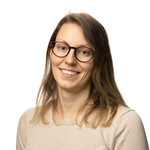
Sandra studied Industrial and Environmental Biology at the University of Applied Sciences Bremen, followed by her MSc in Molecular Biomedicine at the University of Copenhagen, Denmark. She did her PhD at the Friedrich Miescher Institute for Biomedical Research in Basel, Switzerland, where she used a combination of 3D genome, epigenome and transcriptome profiling to identify enhancers crucial for facial morphogenesis. Within the Zaugg and Mall research groups, Sandra’s main focus is to study the underlying mechanisms of phenotypic plasticity in glioblastoma multiforme, a form of brain cancer, using single cell multi-omics data from human patients and brain organoids.
Beyond research, Sandra finds joy in culinary pursuits, including cooking, baking, and exploring diverse cuisines. She also likes running, playing board and digital games with friends and drawing.
Jonas Rauchhaus (PhD student) contact: jonas.rauchhaus [at] embl.de
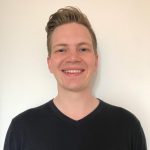
Jonas obtained his M.Eng. in Biomedical Engineering at Imperial College London, where he investigated G-quadruplexes during ageing and cancer as part of his master thesis. In the Zaugg group, he works with model systems of the bone marrow niche to study blood stem cell differentiation and its dysregulation in ageing and diseases.
During his free time, Jonas enjoys to make music and likes all things alpine.
Aryan Kamal (PhD student) contact: aryan.kamal [at] embl.de
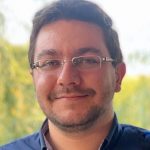
Aryan studied Computer Science at the Sharif University of Technology in Iran. He continued his studies in bioinformatics at Saarland University, where he implemented an algorithm for haplotype phasing of third-generation sequencing data. His main research interest in the Zaugg group are reconstruction and application of Gene Regulatory Networks from (single cell) RNA-seq and ATAC-seq data.
Apart from research, Aryan likes gaming, playing chess, reading history and traveling.
Guido Barzaghi (PhD student joint with Krebs lab) contact: guido.barzaghi [at] embl.de
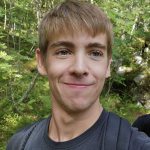
Guido studied Biotechnology at the University of Turin in Italy to then transition to Bioinformatics for his MSc degree at the University of Copenhagen where he worked on single cell RNA-seq data of an in-vitro model of brain development.
His main research interest in the Zaugg and Krebs groups is the characterisation of cooperative TF binding through the integration of Single Molecule Footprinting and RNA-seq data.
Besides research, Guido enjoys listening to music, playing the guitar and watching movies
Sara Lobato Moreno (PhD student) contact: sara.lobato [at] embl.de
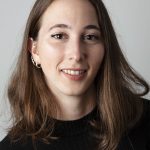
Sara holds a Bachelor’s degree in Biology from Universidad Autonoma de Madrid in Spain, and a Master’s in Molecular Biosciences with a specialization in Neuroscience from Heidelberg University in Germany.
In the Zaugg group, her focus is on the development of high-throughput single-cell multiomic methods that enable profiling chromatin accessibility and RNA expression across a large number of samples and cells. Using these approaches, she aims to uncover gene regulatory mechanisms and key genetic factors driving the response of different neuronal cell types to neuroinflammation.
Beyond her life in the lab, Sara enjoys yoga, biking, tennis, spending time with friends or escaping to Spain for a dose of sunshine.
Maksim Kholmatov (PhD student) contact: maksim.kholmatov [at] embl.de
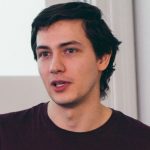
Maksim finished Medical Biophysics programme at Saint-Petersburg State Pediatric Medical University, Russia. He did his thesis in N.N. Petrov National Medical Research Center of Oncology where he studied genetics of sporadic and hereditary oncogenesis. In the Zaugg lab his research interests revolve around using multiomics approaches to dissect gene regulation within bone marrow stem cell niche.
In his spare time Maksim likes playing football, finding new music, and fiddling around with his laptops.
Frosina Stojanovska (PhD student) contact: frosina.stojanovska [at] embl.de
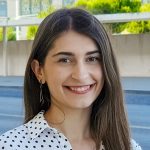
Frosina studied Computer Science at “Ss. Cyril and Methodius” University – Skopje. After that, she graduated with an MSc in Bioinformatics at the same university with a master thesis on protein structure prediction with deep learning. Her main research interest at Zaugg group is a multi-modal analysis with in situ Cryo-ET imaging data and omics data using Mycoplasma pneumoniae as a model organism.
Apart from research, Frosina is also enthusiastic about travelling, photography and enjoying sunrises and sunsets
Josephine Brysting (PhD student at MMPU joint with the Müller-Tidow lab) contact: josephine.brysting [at] embl.de
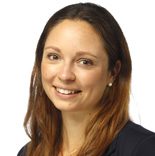
Josephine studied Human Biology at Loughborough University in the United Kingdom and thereafter graduated with a Professional Scientific Masters in Biotechnology from the University of San Francisco, USA. In San Francisco, Josephine acquired an interest for engineered immune cell therapies whilst working at two start-ups, most recently as a Senior Research Associate at CERo Therapeutics Inc. As a PhD student in the Zaugg Lab, Josephine is interested in using a multi-omics approach to identify novel antigens in Acute Myeloid Leukemia (AML) for targeting by chimeric antigen receptor (CAR) T cells.
Outside the lab, you will find Josephine running the hills of Heidelberg, meeting with friends and staying up to date with start-ups and innovation.
Evi Vlachou (PhD student) contact: evi.vlachou [at] embl.de
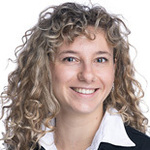
Evi obtained a Bachelor’s in Biology from NKUA in Athens and a Master’s in Immunology from the University of Amsterdam, with a minor in Big Data. Her thesis at Dkfz-Heidelberg focused on understanding memory B cells while during her minor at Institute curie, Evi developed an interest in computational cancer biology. She then pursued a second Master’s in Bioinformatics from ENS, Paris, exploring retinoic acid resistance in Acute Promyelocytic leukemia. Currently, Evi’s main research interest is to infer gene regulatory networks in Acute Myeloid Leukemia and understand the cell interactions in the bone marrow employing a single-cell multimodal approach.
Outside the lab Evi enjoys yoga, dancing, techno festivals, and traveling.
Andrei Stapran (PhD student at MMPU joint with Pabst lab) contact: andrei.stapran [at] embl.de
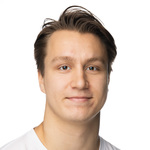
Andrei studied Biological Sciences at the University of Oxford and further did his masters research at the Skoltech Institute in Moscow. In his masters thesis he focussed on identifying novel cancer-specific antigens derived from retroelements using RNA-seq and immunoproteome data. In the Zaugg lab his main research interests are finding predictive and prognostic immune cell biomarkers for AML as well as mechanisms regulating cytotoxity and specificity of immune cells towards cancer cells.
Apart from research, Andrei loves to play football, play trumpet in the music bands (mainly soul and jazz) as well as learning new languages.
Jia Yan (PhD student at MMPU joint with the Müller-Tidow lab) contact: jia.yan [at] embl.de

Jia studied Bioscience at Sichuan University for her Bachelor’s and further studied Developmental Biology at the Hong Kong University of Science and Technology (HKUST) for her Master’s degrees. In her master’s thesis, she focused on the cell fate decision of stem cells and thus gained a strong interest in stem cells. As a PhD student in the Zaugg Lab, Jia is focused on revealing the role of rRNA modification, specifically 2’-O-Methylation, in Acute Myeloid Leukemia (AML) by using transgenic mice.
Outside the lab, Jia loves hiking, traveling, and making lovely handicrafts.
Merve Pekerli (Intern student) contact: merve.pekerli [at] embl.de
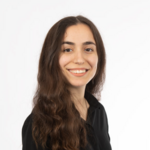
Merve obtained her Bachelor’s degree in Molecular Biology and Genetics from the Istanbul Technical University. Currently she is pursuing her Master’s degree in Molecular Biosciences at the University of Heidelberg, majoring in Molecular and Cellular Biology. Her main interest at Zaugg group is to unravel bone marrow niche remodeling upon leukemia.
Besides research, Merve loves traveling, making glass artworks, and organising events.
Anna-Marie Hulleman (Master student) contact: annamarie.hulleman [at] embl.de
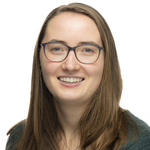
Anna-Marie studied Biomedical Sciences and continued with her Master’s degree in Cancer, Stem Cells & Developmental Biology, both at Utrecht University. In her first internship, she characterized intestinal polyps in Peutz-Jeghers syndrome using a patient-derived organoid biobank. Her main focus in the Zaugg and Saka groups is using multiplexed imaging and targeted spatial transcriptomics to understand the remodeling of the bone marrow niche upon leukemia.
Outside the lab, Anna-Marie loves playing the violin and piano, reading books, engaging in board and card games, and spending time with friends and family.
Amelia Kurti (Master student) contact: amelia.kurti [at] embl.de
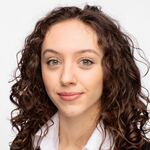
Amelia holds a Bachelor’s degree in Genomics from University of Bologna. She conducted her thesis research project at Graf laboratory, CRG Barcelona, focusing on transcription factor activity in early embryogenesis and cell reprogramming. Currently she is pursuing a Master’s degree in Molecular BioSciences, majoring in Cancer Biology, at University of Heidelberg and DKFZ. In Zauggs groups she is interested in exploring cell-to-cell variability at the level of chromatin and gene expression during hematopoiesis.
Beside science, Amelia loves dancing, visiting art galleries and museums and getting involved in youth empowering organizations.
Alumni of the Zaugg lab
Christofer Richard (Intern student)
Eftychia Kormari (Intern student)
Yaren Canten (Intern student); now MSCA PhD student at Utrecht University
Trifone Pastore (Master student, 2023)
Anna Mathioudaki (PhD student); now Postdoc in the Gerstung lab at DKFZ, Division for Artificial Intelligence in Oncology
Gerard Deuner (Intern student, 2023); now Master student at Universitat de Barcelona
Victor Paton (Intern student, 2023); now Master student at Heidelberg University
Miguel Hernandez (Master student, 2022-2023); now PhD student at Heidelberg University
Bogdan Avanesyan (Master student 2022-2023); now PhD student at MDC Berlin
Olga Sigalova (PhD student); now Postdoc in the Aerts lab, VIB-KU Leuven Center for Brain and Disease Research
Daria Bunina (Postdoctoral EIPOD fellow 2016-2022); now group leader at MDC Berlin
Brian (Mang Ching) Lai (Postdoctoral fellow 2016-2022); now at GSK/Cellzome
Neha Daga (Postdoctoral fellow 2018-2022)
Lukas Jarosch (Master student 2021); now intern at Novartis
Irene de Teresa Trueba (EIPOD Postdoctoral fellow 2017-2021); now at ENGIE
Sophia Mueller-Dott (Master student 2020-21); now PhD student at HD University
Ivan Berest (PhD student 2016-2020, Postdoc 2020); now at Roche
Alexander Mattausch (Intern student 2019-2020); now student in Heidelberg
Mathias Andres Savar Cortes (Postdoc 2018-2020); now at Indivumed
Chaitra Rao (Master student 2019-2020); now at Novartis
Ignacio Ibarra (Predoc 2015-19, Postdoc 2019-2020); now Postdoc at the Helmholtz Center in Munich
Saudat Alishayeva (Intern student 2019); now student at Bahcesehir University, Istanbul
Frauke Huth (Master student 2019); now student at Oxford University, UK
Amirreza Shaeiri (Intern 2019); now student at Sharif University, Iran
Andrew Ó hEachteirn (Intern 2018-2019); now student at Cambridge University, UK
Mariana Ruiz-Velasco (Predoc 2014-2018, Postdoc 2018-2019); now Data Scientist at BASF
Armando Reyes Palomares (Postdoc 2015-2018); now Postdoc at Universidad Complutense Madrid
Giovanni Palla (Master student 2017/2018); now PhD student at Helmholtz Centre Munich
José Bautista (Visiting scholar 2017/2018)
Stefan Kleinsorg (Master Student 2016/2017)
Rafail Nikolaos Tasakis (Visiting Scientist 2016/2017); now PhD student at DKFZ Heidelberg
Gesa Hillmer (Master student 2016/2017); now at Springer in Heidelberg
Constantin Ahlmann-Eltze (Master student 2016/2017); now PhD student at EMBL
Manish Goel (Master student 2016); now PhD student at MPI Cologne
Rocío Rodríguez López (Visiting PhD student 2016); PhD student at University of Málaga
Ece Kartal (Visiting Scientist 2015); now PostDoc in the Saez-Rodriguez Group at Universität Heidelberg
Pooja Bhat (Visiting Scientist 2015); now PhD student at IMBA Vienna
Ana Belen Solis Pinson (Visiting Scientist 2014/2015)